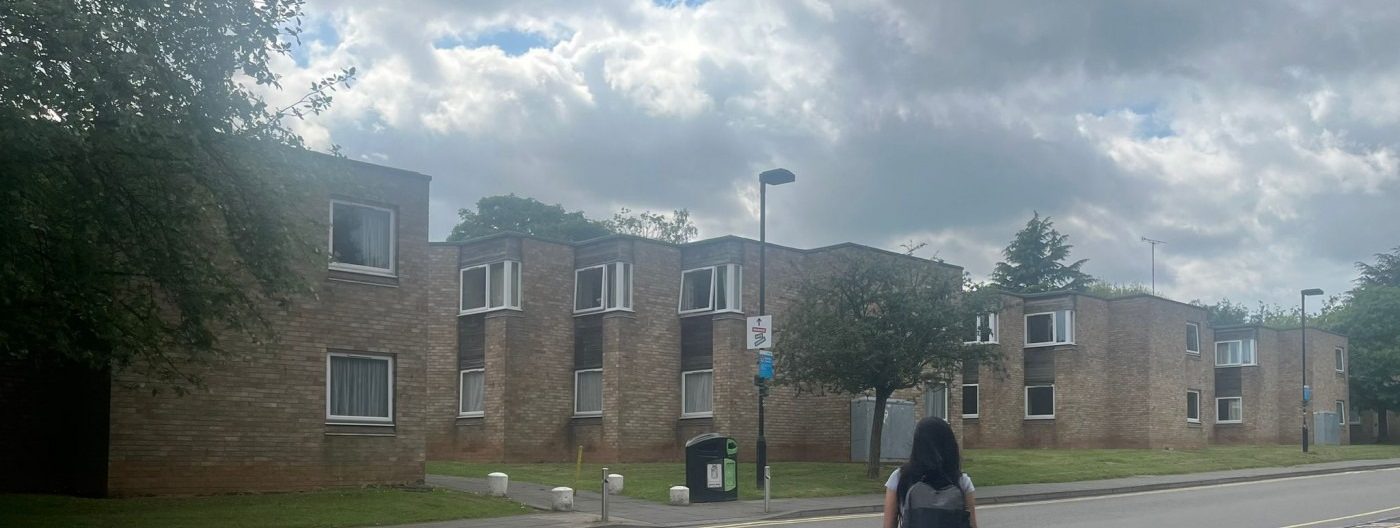In defence of Whitefields
In defence of Whitefields is a phrase that I, and I don’t think any other Warwick student, would ever expect to be said. Nonetheless, it is a statement I feel is crucial right now, as the campus’ most affordable accommodation is set to be demolished this summer.
At only £91 weekly, Whitefields has earned itself a reputation on campus that not even Rootes would envy. Its affectionate nickname ‘Sh*tefields’ is no surprise when you experience its tenuous internet connection or the bizarrely angular shapes of its kitchens shared between twelve. Those who have been lucky enough to ever grace one of the 195 Whitefields rooms on campus will know all too well of the silent judgment that admitting to living there invites.
The demolition of Whitefields will mean that the price of the cheapest on-campus accommodation option has risen by £30 a week
Despite my mockery, the plans to demolish Whitefields should be of grave concern to Warwick students, particularly those who care about access for underrepresented groups. The planned demolition leaves the lavish Cryfield Standard (£4,840/year) and the opulent Rootes palaces at £4,920 for a 40-week contract as the cheapest options in 2024/25. The demolition of Whitefields will mean that the price of the cheapest on-campus accommodation option has risen by £30 a week. This represents a sizeable 32% increase for just one academic year. In fact, nothing amongst the available on-campus accommodation is classified as ‘affordable’ under NUS rules since 2019.
We are yet to learn the specific details of the university’s plans for the space where Whitefields currently stands, but there is little to suggest similarly affordable residences will replace it. One of the university’s more recent endeavours, the Cryfield Village project, doesn’t exactly indicate a prioritisation of affordability in building student accommodation. For instance, Cryfield Townhouses, whilst attractive, cost a hefty £207 per week (£8,250 a year) this year and is set to jump to £221 in September. Perhaps it is belief driven by a natural cynicism, but the university has done little to offer students any confidence in its willingness to accommodate students from working-class and other marginalised backgrounds.
Admittedly, the notion of tight student budgets or endless pesto pasta and instant noodles certainly would not be unfamiliar to a student a decade prior but skyrocketing energy bills have pushed up living costs on and off UK university campuses significantly. In Autumn’s All Student Votes, Warwick SU passed a motion from a campaign group known as Warwick Housing Organisation to call on the university to freeze rents and even reduce them to pre-COVID rates.
Although inflation has now slowed, the cost-of-living crisis is still biting with a majority of students now in part-time work as rents remain high. The average maintenance loan for an English student sits at £6,116, which would not cover any of the campus’ en-suite options next year, or even Claycroft, a figure further skewed by the higher loans offered to London students. Let’s not forget this loan must cover food, transport and other living costs. Furthermore, maintenance loans for English students are set to increase just 2.5% in the 2024/25 academic year, representing another below-inflation adjustment after the most recent rise, a mere 2.8% in a year of rampant price rises. These pressures, of course, are not the fault of the university yet also does not absolve them of their responsibility to enable accessibility to a degree education for all.
Ultimately, the planned demolition of Whitefields represents yet another sorry indictment of a university unwilling to support its students in a cost-of-living crisis that would call into question any claim to promote social mobility
Still, many appear to find it as easy to dismiss concerns about student poverty. After all, as a Russell Group university, many students are privileged enough to receive parental contributions towards their living costs on top of their maintenance loans. However, students from care-experienced, estranged and deprived backgrounds, as well as those that simply do not have the advantage of outside funding are also often those that face the greatest barriers in accessing and continuing higher education. Even the parents who do pay out of pocket to support their children’s education deserve some respite.
At a time when budgeting is more crucial than ever, a focus on the construction of expensive en-suites and demolition of the most affordable options risks deterring prospective working-class students. Coventry’s affordability as a city is undoubtedly part of its appeal for many students. Furthermore, it is evidently possible to provide comfortable student accommodation within a realistic student budget. Coventry University, just five miles away from campus, will offer en-suite rooms at £150 weekly in 2024/25, a sum that would fall over a substantial £2,000 short of covering Heronbank.
Thus, this article is not necessarily a desperate love letter to Whitefields; I certainly wouldn’t expect anyone to be tying themselves to the buildings this summer in anguished protest. Instead, I wish to underscore a troubling wider trend of the university’s neglect of affordable campus living, in favour of, to be frank, profiteering.
The prices of all options for on-campus undergraduate accommodation are set to rise in September at an average of 5%. Ultimately, the planned demolition of Whitefields represents yet another sorry indictment of a university unwilling to support its students in a cost-of-living crisis that would call into question any claim to promote social mobility.

Comments